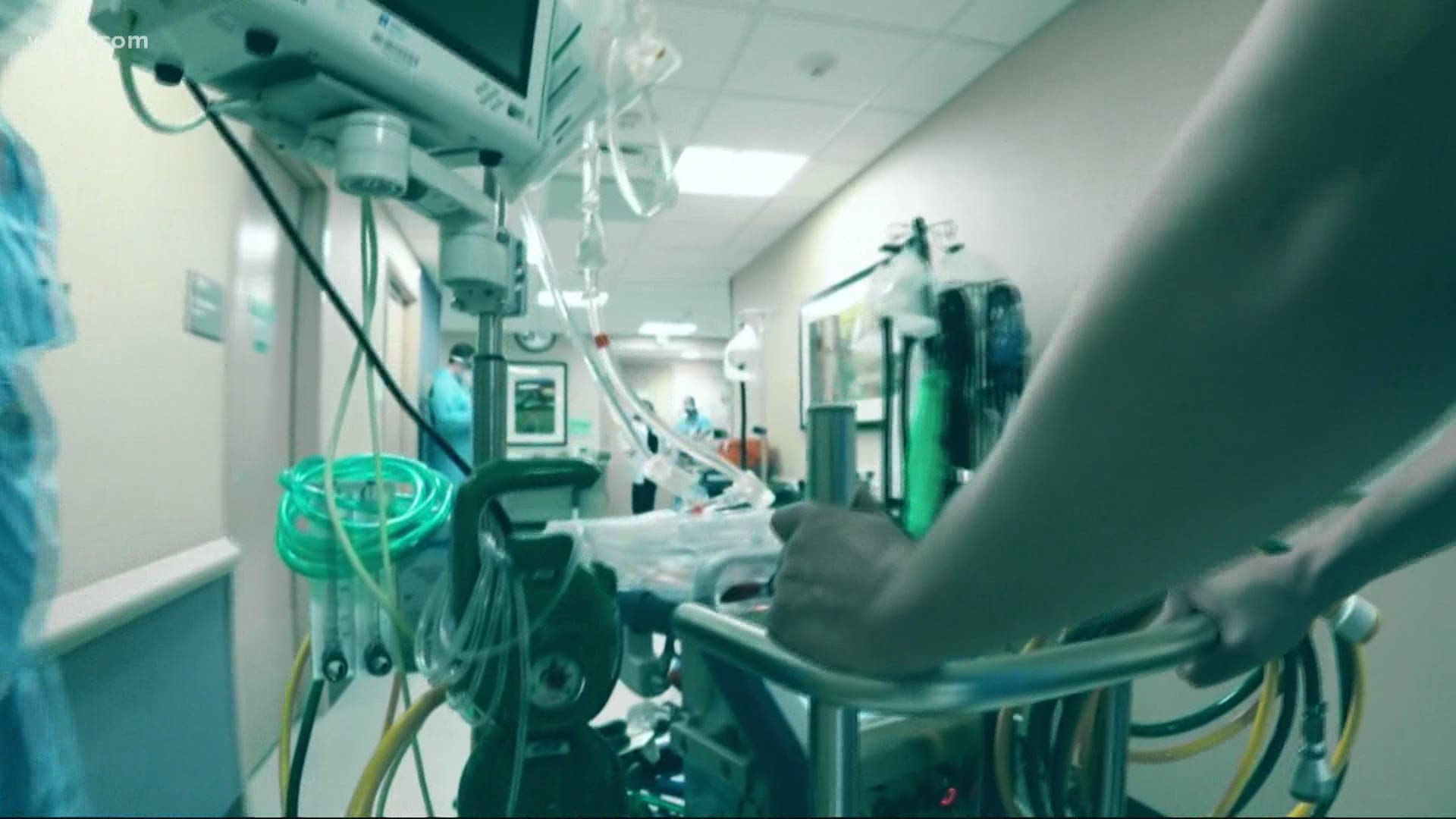CHARLOTTE, N.C. — The first COVID-19 vaccinations were administered in the Carolinas on Monday. Front-line health care workers and residents and staff of long-term care facilities are receiving the first rounds.
As the general population awaits its turn to receive the vaccine, WCNC Charlotte asked viewers what questions they have about the vaccines and have asked them to medical experts.
Vanessa Ruffes got some answers from Dr. Janny Soriano, a doctor at a hospital in South Carolina; Dr. Paul Offit, Director of the Vaccine Education Center at Children's Hospital of Philadelphia and member of the FDA advisory panel that recommended the Pfizer vaccine for approval; and Patricia Stinchfield, President of the National Foundation for Infectious Diseases.
QUESTION: When it's time for the general population to get the vaccine, will it be on a first-come, first-served basis?
DR. SORIANO: North and South Carolina may have different vaccine distribution plans. We will need to stay updated from our healthcare authorities regarding when that will happen and how that will be done.
QUESTION: We know the Pfizer and Moderna vaccines require two doses, several weeks apart. Is it guaranteed that your second dose of that same brand vaccine will be there for you?
DR. SORIANO: Patients are not considered fully vaccinated until they have received two doses, of the Pfizer vaccine, for example. When they are created, these distribution plans have to take that into consideration.
For members of the community, when you do get vaccinated, one thing we have to do is make sure you get the second one to make sure you are fully vaccinated when the time comes.
QUESTION: Two patients in the UK with histories of severe allergic reactions have reported allergic reactions to the Pfizer vaccine. Is it safe for someone who is highly allergic to bee stings and spider bites (requiring hospitalization in the past) to get the vaccine?
DR. OFFIT: The CDC recommendation is if you've ever had a severe allergic reaction to an injectable product, then do not get this vaccine. However, if you have a severe allergic response otherwise -- so for example, people commonly have peanut allergies or egg allergies, or other food allergies -- you can still get this vaccine. You just need to wait in the area where you've gotten the vaccine for 30 minutes. So, if you do have an allergic reaction, somebody would be able to give a shot of epinephrine to reverse it.
QUESTION: What is a normal bodily reaction to the COVID-19 vaccine?
STINCHFIELD: You should expect that your arm may be sore. You should expect that maybe you have some feeling of fatigue or muscle aches, and you may have some fever you may have some headache. Those things are to be expected, and what is happening is your immune system is responding. It sees the bad guy, and it's making the good guys.
QUESTION: Can pregnant women or nursing mothers be vaccinated?
DR. OFFIT: The only thing to think about is high fevers in pregnancy can be deleterious to the unborn child, so were one to have a high fever associated with the vaccination -- and that does not seem to be a problem.
You can get fevers, but typically low-grade fevers, then one could reasonably treat that with an anti-fever medicine -- and same for breastfeeding women. There's no biological reason to think one can't breastfeed if getting this vaccine. So, the thinking from CDC is if you're pregnant, if you're breastfeeding, you can certainly consider getting this vaccine.
RELATED: Debunking myths about the flu shot
QUESTION: What is the length of protection from any vaccine?
DR. SORIANO: Vaccine schedules are readily available if you were to look them up with the Department of Health or CDC. For influenza, it's a yearly vaccine. For the coronavirus vaccine, that information is not yet available on when you'd need to revaccinate.
Vaccine schedules are readily available if you were to look them up with the Department of Health or CDC. For influenza, it's a yearly vaccine. For the coronavirus vaccine, that information is not yet available on when you'd need to [be] revaccinated.
The goal right now is for everyone to get that first shot. I would venture in the future, as 2021 rolls around, that we will know what the new vaccination schedule would be for this vaccine.

